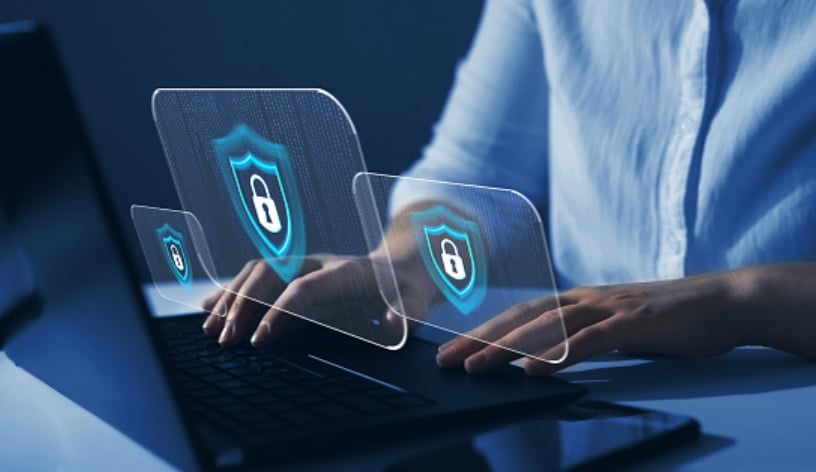Widespread use and availability of computers and smart devices make life easier for millions. These devices are used for shopping, work, and everything in between, smartphones, tablets, laptops, and other mobile devices are everywhere. While that’s fantastic from a quality of life perspective, it means users and their data are at risk of being compromised or hacked at some point.
According to Pew Research Center, 18% of Americans have had their information stolen at some point. Staying secure online is more important than ever before and to do that, you must have the right tools for the job. Here are some things you can do to keep yourself, your devices, and your entire family safe online.
Update Everything Regularly
Computers and smart devices work well most of the time, but occasionally new updates (firmware, security patches, improvements, and so on) for applications must be installed. This ensure their continued performance and often included new security protocols to boost their safety.
For instance, if a bug is discovered in a program, the developers will work on a patch to repair it. When finished, the patch is then distributed to users. Failure to stay on top of these updates can spell bad news for your online safety. An out-of-date application can expose vulnerabilities and make it a target for an attack.
Update and Use A Secure Internet Browser
Keeping your desktop and phone applications up-to-date is vital, but you should also apply the same logic to your internet browser. There are many unique browsers out there: Chrome, Edge, Opera, Vivaldi, Brave, and Mozilla Firefox, and many others.
Each has their own way to protect their uses, but to so effectively requires keeping your browser up-to-date. Users can also tweak their security settings, enable private mode, use two-factor authentication, and manage permissions.
Using an ad blocker can also be beneficial to keeping your browsing more private. Staying on top of browser security is just as vital as keeping up to date on your system security, so be sure to check for updates regularly—and take a moment to install them before getting back online.
Use Security Software
This probably seems like another fairly obvious one, but security software is a great way to improve your online security. Anti-malware, antivirus, and firewalls have proven their strength as a deterrent over the years, but today’s security landscape calls for a but more firepower to take on the various threats facing consumers today.
Security software can reinforce your protection by incorporating antivirus, malware protection, firewall, identity theft protection, device control, and Phishing protection into a comprehensive package for several devices per subscription.
As attacks and malware become more sophisticated, you’ll want to stay ahead of the threats with superior maximum security software and use it across all your devices to ensure your safety online.
Back Up Your Data
Another fantastic way to protect yourself online is to create regular backups of your work. That way you can get it back if disaster strikes. Whether the server crashes, the data becomes compromised, you fall victim to ransomware, or get infected with Malware, a backup is a lifesaver. Backing up days is also incredibly easy to do. Not only that, but having a copy somewhere other than your local machine means you can recover your data and reduce any risks associated with ransomware (or other malware attacks).
You might want to consider using the 321 backup method which means having three copies of your backups. Two of them should be stored locally and one of them should be stored off site. This way, you can ensure you can retrieve your data easily and get your system back up and running fast.
Use Strong Passwords
Passwords have the potential to be one of the major hassles of modern life. But they don’t have to be. It’s remarkably easy for bad passwords to be stolen, hacked, or otherwise compromised. Strong passwords are essential for staying safe, private, and secure when using your favorite apps and doing financial transactions online.
Passwords must be strong enough to prevent attackers from obtaining them. That means you must make it longer, unique, and more complex. You should also consider using two-factor authentication and keeping passwords in a password manager.
That way, you can access them anytime through a master password and avoid trying to remember all your passwords at once. Security is of the utmost importance when it comes to doing anything online and you can vastly improve yours by following a few simple methods.








